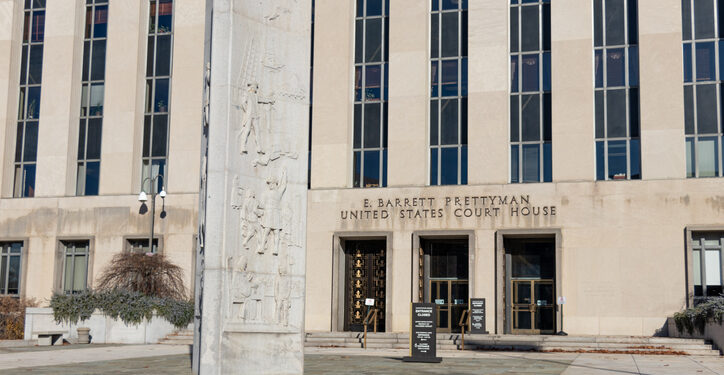On April 7, the full U.S. Court of Appeals for the District of Columbia Circuit issued a ruling temporarily reinstating Cathy A. Harris, who leads the Merit Systems Protection Board (MSPB), after the Trump administration fired her without cause in February. The court voted 7-4 to vacate an earlier ruling from a three-judge panel on the court which had upheld the firing.
The ruling restores a quorum at the MSPB, which oversees all federal employee whistleblower retaliation cases, meaning that the Board can continue to issue final rulings as long as Harris’ reinstatement holds.
“The DC Circuit has followed the law and has prevented the President of the United States from undermining the entire civil service,” said whistleblower attorney Stephen M. Kohn, founding partner of Kohn, Kohn & Colapinto and Chairman of the Board of National Whistleblower Center. “If the president’s decision to terminate Cathy Harris was upheld the MSPB would have lost its quorum and would have been unable to issue relief to the millions of civil servants protected under civil law.”
Harris was fired by President Trump on February 10. She quickly challenged her termination, claiming it was illegal because under federal law, members of the MSPB may be removed from office “only for inefficiency, neglect of duty, or malfeasance in office.”
The Trump administration has argued that that statute is unconstitutional and impedes on the Executive power of the president. However, according to the DC Circuit, while the Supreme Court has found certain laws with removal protections unconstitutional, it “has repeatedly stated that it was not overturning the precedent established in Humphrey’s Executor and Wiener for multimember adjudicatory bodies.”
Thus, the DC Circuit ruled that “the Supreme Court’s repeated and recent statements that Humphrey’s Executor and Wiener remain precedential require denying the government’s emergency motions for a stay pending appeal.”
The case will likely soon be heard by the U.S. Supreme Court.
Had Harris’ firing stood, the MSPB would have been without the two members needed for a quorum, meaning it would have been unable to issue final rulings in whistleblower retaliation cases.
For a period of five years from 2017 through 2022, the MSPB lacked a quorum. By the time quorum was established, the Board faced a backlog of over 3,500 cases. Some whistleblowers, whose cases already faced lengthy delays prior to the loss of quorum, saw their retaliation cases stretch on for over a decade.
“Every federal employee would have been at risk of being illegally fired with no effective recourse if President Trump delayed or failed to nominate a successor and the U.S. Senate delayed or failed to approve the nomination,” Kohn added. “The MSPB has exclusive jurisdiction over the majority of civil servants. Whistleblowers would be most at risk. Whistleblowers and anyone who dared to blow the whistle would be at risk for summary and illegal discharge.”
The fact that federal employees are unable to have their cases heard in federal court and entirely reliant on the MSPB for whistleblower retaliation cases, has been heavily criticized by whistleblower advocates for years. They argue that federal employees deserve the right to a jury trial, given the lengthy delays and vulnerability to political pressure that comes with the MSPB.
On March 26, Senator Richard Blumenthal (D-CT) introduced the Congressional Whistleblower Protection Act of 2025, which gives access to jury trials to federal employee whistleblowers who face retaliation for providing information to Congress.
The passage of the Congressional Whistleblower Protection Act is one of the major campaigns of the National Whistleblower Center (NWC).


